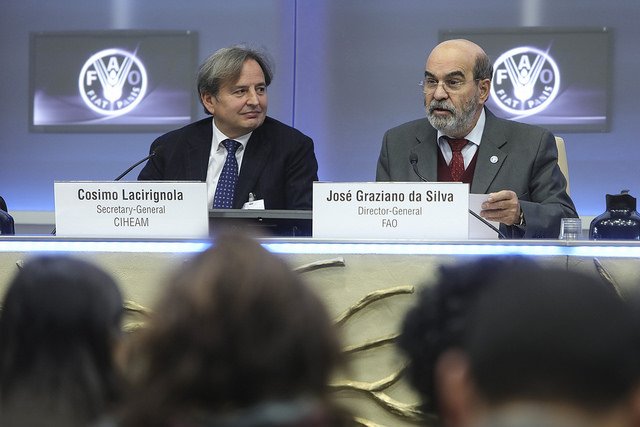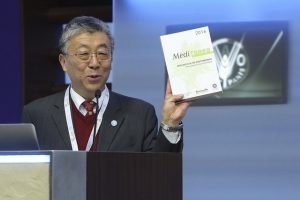
Mediterra 2016. Zero Waste in the Mediterranean
Natural Resources, Food and Knowledge
ROME, December 5th, 2016 – Presented in Rome the 5th of December during the FAO Council 155th Session, the 2016 UNFAO-CIHEAM Joint edition of Mediterra offers an innovative and prospective approach on the issues of TRIPLE WASTE reduction including agricultural losses, waste of natural resources and waste of knowledge and knowhow. This Report features a collection of shared expertise and local experiences in the Mediterranean region. It provides the keys to reading and solutions for action targeting policy-makers, development operators, professionals and researchers.
Agriculture and food security are two major global challenges. Situated at the heart of the new Sustainable Development Goals (SDGs), they raise several strategic issues for countries and international cooperation. ‘Produce more and better’, such is the equation to help address the challenges related to population growth, changing consumption patterns and scarcity of natural and financial production resources. In this context, the reduction of agricultural losses and food waste has become a priority.
Publisher: Presses de Sciences Po, Paris
Organization: Centre international de hautes études agronomiques méditerranéenne (CIHEAM)
Other organizations: Food and Agriculture Organization of the United Nations (FAO)
Year: 2016
ISBN: 978-2-7246-2031-3
Geographical coverage: Europe and Central Asia, European Union (European Union), Near East and North Africa
Full text available at: http://www.ciheam.org/uploads/attachments/333/Mediterra2016_EN_BAT__1_.pdf
Content language: English
Type: Report

Related Post
Micro and small businesses can act...
In an international context where conflicts have reached their highest level since the Second World War, what role can micro, small, and med...
Celebrating Women Entrepreneurs: Key Insights from...
According to the GEM 2024/2025 Global Report entitled Entrepreneurship Reality Check, far too many women entrepreneurs are still seen by nat...
SME Digitalisation to manage shocks and...
Although uptake of digital practices by SMEs continues to increase, so too has the “digital gap” with larger firms. Understanding the dr...





